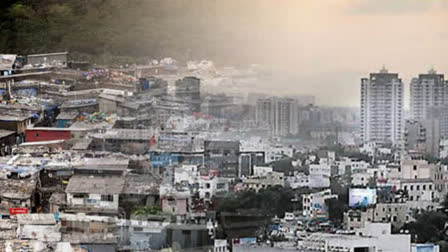Hyderabad: World Habitat Day is celebrated annually on the first Monday of October. This year, 7th October marks World Habitat Day, a global initiative recognized by the United Nations to spotlight the importance of adequate shelter and to reflect on the condition of towns and cities.
• World Habitat Day is a day designated by the United Nations to think about the condition of cities and towns worldwide and acknowledge everyone's right to suitable shelter.
• The purpose of World Habitat Day is to ensure that everyone has the capability and accountability to influence the future of urban areas. It also seeks to convey that having a good living environment can eliminate obstacles to achieving opportunity, health, and success.
History of the day:
World Habitat Day was established in 1985 by the UN General Assembly through Resolution 40/202. In 1985 the United Nations designated the first Monday of October every year as World Habitat Day. The idea is to reflect on the state of our towns and cities and the basic right of all to adequate shelter. It is also intended to remind the world of its collective responsibility for the future of the human habitat. World Habitat Day was first celebrated in 1986 with the theme “Shelter is My Right”. Nairobi was the host city for the observance that year.
Significance of World Habitat Day:
• World Habitat Day is celebrated in many countries across the world to address the problems of rapid urbanisation and its impact on the environment and human poverty.
• The day also intends to remind the world of its collective responsibility for the future of the human habitat.
• Many nations globally observe World Habitat Day to tackle the issues stemming from fast urban growth and its effects on the environment and poverty levels in humans. The purpose of the day is also to highlight the world's shared accountability for the future of the human environment.
Theme of the year:
The Global Observance of World Habitat Day, marked on 7 October 2024, is under the theme “Engaging youth to create a better urban future.” This event aims to address the challenges and opportunities of rapid urbanization by focusing on the active involvement of young people in shaping sustainable cities and communities. The observance focuses on how we can engage the new generation in planning their urban present and future through participatory processes and local leadership opportunities.
2024 Scroll of Honour Award:
• UN-Habitat, the United Nations agency focusing on sustainable urbanization, is awarding its prestigious 2024 Scroll of Honour Award. It is currently the most prestigious human settlements award in the world.
• The Scroll of Honour Award aims to acknowledge initiatives which have made outstanding contributions in various fields such as shelter provision (providing adequate, affordable, and accessible housing), highlighting the plight of the homeless, leadership in post conflict reconstruction, and developing and improving the human settlements and the quality of urban life.
• The winners will receive their awards at the global observance of World Habitat Day in Querétaro City, Mexico, on 7 October 2024.
The Housing Crisis in India:
1. With 1.4 billion people, India is now the most populated country globally, posing a persistent challenge in providing affordable housing for low-income city dwellers.
2. In 2012, Indian cities had a housing gap of approximately 19 million units as reported by India’s Ministry of Housing and Urban Affairs.
3. According to the 2011 census, the research found that over 95 percent of the shortage was in housing for low-income individuals.
4. The 2011 census showed that India had over 1.7 million homeless individuals residing on streets, under bridges, in religious buildings, and at train stations.
5. In 2020, a different research conducted by Indian Council for Research on International Economic Relations (ICRIER) revealed that the urban housing shortage in India increased by 54 percent to reach 29 million in 2018, up from 18.78 million in 2012. It encompassed households without homes, those living in substandard houses that couldn't be improved, outdated houses, and those in overcrowded conditions.
